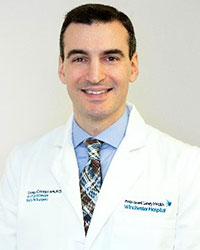Weight Loss Surgery: A New Approach to a Healthier You
Losing weight can feel like trudging up an escalator that's moving in the opposite direction, made all the more frustrating when dieting, exercise, and medication just don't seem to result in lasting changes. In fact, research has shown that for those trying to lose more than 100 pounds of weight, there's only about a 3% chance of actually maintaining that loss through traditional diet and exercise. Not exactly an encouraging statistic... However, for the morbidly obese, another option — weight loss surgery — has proven to have by far the highest success rate of any intervention method.
Where To Begin?
Approaching the topic of weight loss surgery with your physician may seem a little daunting. It's best to come prepared with some questions. Like any surgery, it's important to feel fully comfortable with the procedure before going in. A big part of that comes from understanding the goals involved and why it makes sense for you. Consider asking:
- Am I eligible for weight loss surgery?
- How do the results of weight loss surgery compare to other options?
- How does the procedure work?
- What are the dangers of the persistent obesity?
- What are the benefits of surgery?
Expert Care, Every Step of the Way
At Winchester Hospital, surgical weight loss is a multidisciplinary program; while surgery itself is a major component, lasting results also require a commitment towards important lifestyle changes. This isn't a commitment you face alone, however. The comprehensive approach at Winchester Hospital equips you with a care team including a nurse practitioner, dietician, and behavioral health specialist, and also helps connect you with others who have found success through the program.
About Dr. Orthopolous
George Orthopolous, MD, PhD, is a board-certified general surgeon specializing in minimally-invasive robotic surgery and laparoscopic techniques at Winchester Hospital. He trained in surgery at Boston University Chobanian & Avedisian School of Medicine and pursued fellowship training in minimally invasive and bariatric surgery. His clinical interests include bariatrics, hernia repairs, and foregut and abdominal procedures.




